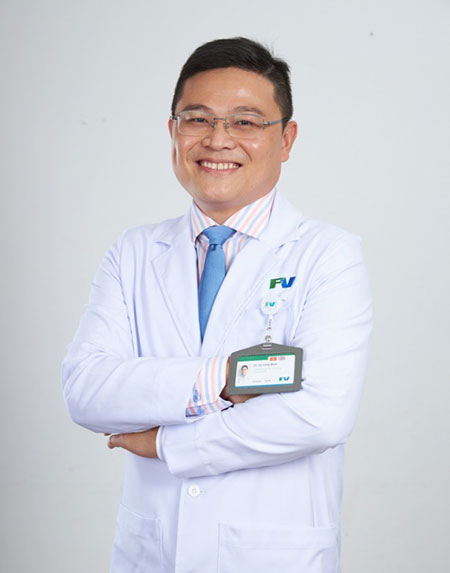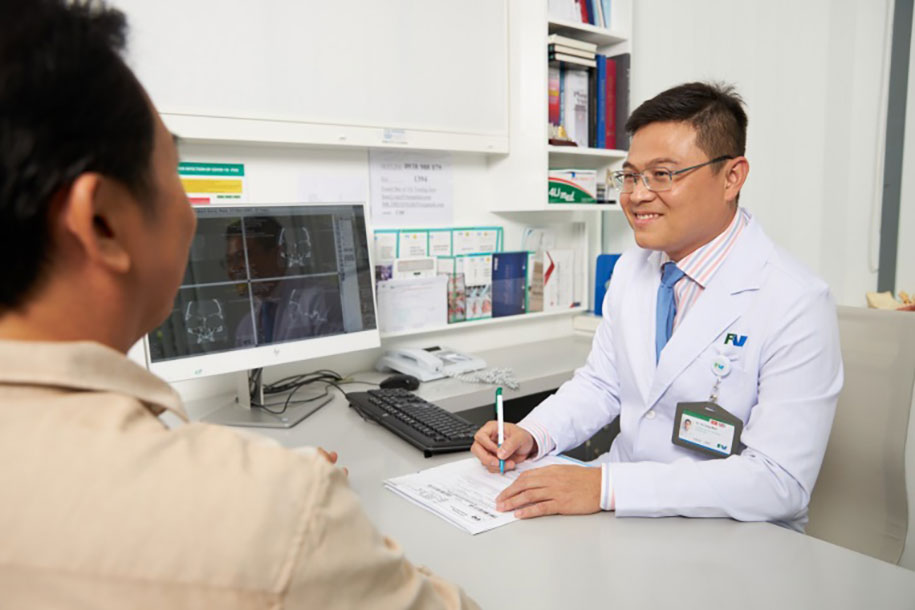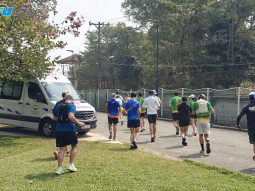It felt natural for FV’s Head of ORL Dr Vo Cong Minh to pursue a career in medicine as his family worked in the medical field, but the more he studied, the more passionate he became about his humanitarian line of work. After practicing medicine for more than 15 years, Dr Minh says that success to him is about being able to apply knowledge and science to solve his patient’s problems while also contributing to the development of future generations of doctors.
Surgery should only be performed when it helps to improve a patient’s quality of life
Growing up in a family with a tradition of medicine, Dr Minh felt that choosing to study medicine was natural, although he loves to draw and once wanted to be an architect. However, after studying medicine for a few years, he was “afraid of leaving the medical profession, so he also put aside his hobby”.
Dr Minh became a surgeon rather than work in internal medicine—perhaps because it incorporates working with the architecture of the body. He found the field of otolaryngology and its complex separate and interconnected structures particularly interesting, and chose it as his specialty.

Dr Minh shared that many countries were making advancements in this field when he was studying, inspiring him to learn and keep furthering his knowledge to be an expert in his field. In the following years, Dr Minh worked continuously, visiting many medical forums and hospitals worldwide to develop his skills and feed his passion for otolaryngology.

Of the many places he has visited, the US has most influenced Dr Minh’s perspective. He says medicine there is completely evidence-based and based on experimentation, from which they come up with regimens for each specific case.
“This approach is very useful, and doctors can choose and evaluate the impact of each method when applying treatment to patients.” Gradually, Dr Minh also adopted the same working methodology.
“My criterium for surgery is to be as minimally invasive as possible. If I think surgery can improve a patient’s outcomes by 70 per cent, I will proceed,” says Dr Minh.
When the patient doesn’t have a serious disease and functions normally, or has no discomfort or pain caused by the disease, there is no need for surgical intervention. Only when the patient’s quality of life is improved is this approach necessary.
Good surgeons take a step back
“I am very grateful to the senior doctors who were enthusiastic in helping me to have the opportunity to practice more surgery,” said Dr Minh. If his father was the most influential person in his decision to study medicine, the senior doctors he has worked inspired Dr Minh’s decision to become a surgeon.
“You can ask to help in many cases, but if you don’t take the scalpel from more senior surgeons, wear a light and perform the incisions, then a simple practice such as removing tonsils may take a long time to master,” he says.
Influenced and helped by many doctors in his career, Dr Minh is very supportive and always willing to help the younger doctors choosing to specialise in otolaryngology in turn. Some surgeries may take a little more time and effort when it comes to guiding students, but Dr Minh has the patience to train them as he believes this is the only way to ensure that there are many good surgeons to meet the needs of patients in the future.

“My principle is to take full responsibility for my surgery, including unwanted situations created by the doctor I instruct,” said Dr Minh. However, he also requires his resident doctors to be determined to pursue this field. To guide a new surgeon, the instructor must assume many more responsibilities, especially with regards to patient safety. Therefore, passion and faith in the profession and a desire to help others follow a medical career are necessary for someone to devote themselves to the junior generation.
Dr Minh is still progressing along his academic path while developing his surgical skills. The confidence and passion that shines in Dr Minh’s eyes when speaking about his major, and the fact that he can “study forever and never get bored,” will enable him to continue to further the profession, as well help the patients he sees every day to enjoy a better quality of life.

 Vi
Vi 












